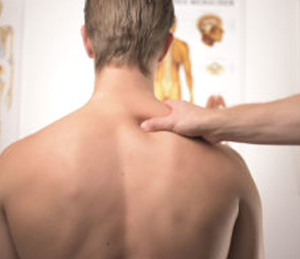Definition of Acupressure

Acupressure: 1. Any treatment that allegedly involves the surface stimulation of acupoints digitally, manually, or with tools held in the hand. Practitioners may be called “acupressurists.” “G-jo” is Chinese for “first aid.” 2. An ancient Asian art involving applied pressure to certain pressure points along the body to open energy flows, release tension, and promote balance.
Explore acupressure research in the following databases:
PubMed Trip Cochrane*
*The Cochrane database requires users to enter the search term manually. Enter “acupressure”
AI Search: Access Semantic Scholar’s results on acupressure.
Semantic Scholar
Learn more about our 3 research databases and AI search platform HERE.
Research Spotlight
The databases often return hundreds of medical studies for a single wellness approach. This section summarizes a sampling of five studies – providing just a taste of the available research.
- Electroacupuncture Helped Chronic Back Pain Sufferers Walk and Move Better
A 2020 double-blinded randomized trial from Stanford University found that six weeks of electroacupuncture (which uses a small electric current passed between needles) helped people with chronic lower back pain: They reported improvements in walking comfortably, standing for longer periods, bending and kneeling, etc. It did not help with pain intensity. The researchers concluded that with back pain, it’s best to use a multimodal approach and electroacupuncture can provide clinically significant reduction in disability.
Access this research on Acupressure - Acupressure Sometimes More Effective than Physical Therapy in Reducing Back Pain
In a randomized controlled trial (129 patients), acupressure was found to be significantly more effective than physical therapy in reducing chronic lower back pain.
Access this research on Acupressure - Wristband Effective in Reducing Motion Sickness
A Pennsylvania State University (US) study revealed that an acupressure wristband is effective in decreasing motion sickness symptoms.
Access this research on Acupressure - Acupressure Can Help Reduce Nausea
A meta-review of available trials (2011) summarized that 16/23 studies found acupressure effective, primarily for management of nausea/vomiting. 9/10 indicated it was effective for dysmenorrhea pain, and pain during labor and after trauma – while 6 reported it improved fatigue and reduced insomnia. Researchers concluded, however, that while acupressure’s impact on symptoms may be wide-ranging, more rigorous trials are needed.
Access this research on Acupressure - Acupressure Trumps Classic Swedish Massage
A Cochrane review (2010, 13 trials, 1,596 participants) assessing the impact of massage types on lower back pain, indicated that acupressure or pressure point massage provided more relief than classic (Swedish) massage. They also argued further research needed.
Access this research on Acupressure
Studies-in-Progress/Clinical Trials Underway
A clinical trial is any research study that assigns people to health-related interventions to evaluate the outcomes. “Interventions” include drugs, surgical procedures, devices, behavioral treatments, preventive care, etc.
- ClinicalTrials.gov: explore trials underway in the U.S.
- World Health Organization: explore trials happening across the globe. When you reach WHO’s search page, please type in “acupressure.”
Access all studies currently available for Acupressure in these databases:
PubMed Trip Cochrane* Semantic Scholar
*The Cochrane database requires users to enter the search term manually. Enter “acupressure”























































